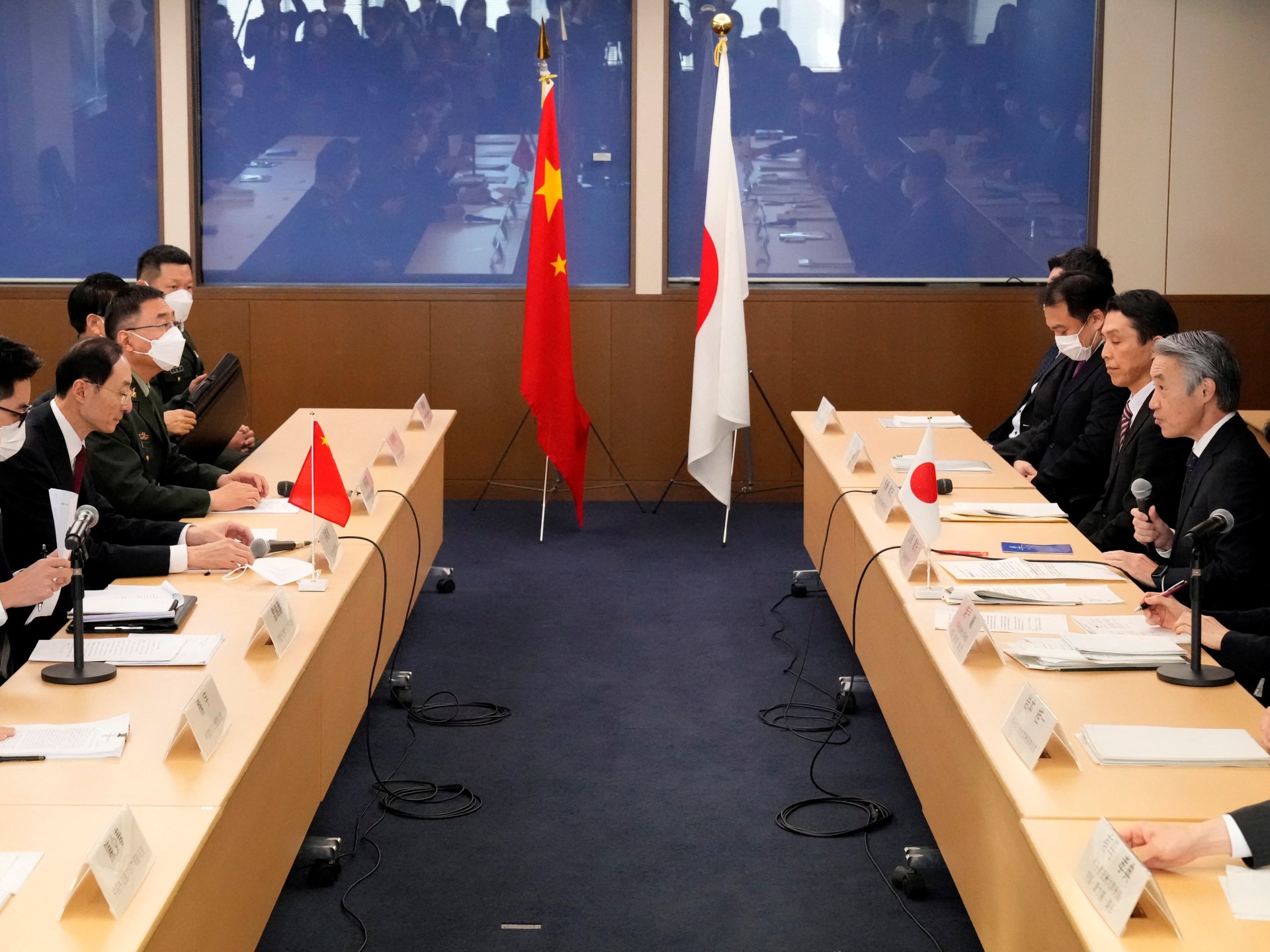Roiling China, rapped in Malaysia: Namewee says goal is harmony
Malaysian hip hop artist, actor, and filmmaker Wee Meng Chee, better known simply as Namewee, made international headlines last year when his music was banned in China over his hit single Fragile.
Recorded with Australian singer Kimberly Chen, the song was portrayed as poking fun at the Chinese government and its sensitivity to public criticism.
Since its release last October, Fragile has accumulated more than 41 million views on YouTube, but it is far from Namewee’s first success or first controversy as an artist.
Namewee’s work has often pushed the envelope in his conservative home country by discussing issues like religion, race, and corruption, earning him several police investigations – including for his 2020 film Babi. It was inspired by a school riot that local authorities allegedly tried to cover up 20 years ago for fear of inflaming racial tensions.
He has even found himself the target of angry fans of the K-pop group Blackpink.
Just more than a month into 2022, Namewee has already released a new comedy Nasi Lemak 1.0, named for Malaysia’s popular spicy coconut rice dish, and a single from the film Curry and Roti, which notched up some 4.4 million views in the week after its release.
Al Jazeera recently spoke to Namewee about his work and reputation.
The interview has been edited for length and clarity.
Al Jazeera: It seems like you are not afraid to be controversial. Have you always been this way, or did something happen that changed you?
Namewee: For me, I never think I’m controversial. Controversial is a word that people give me. I never say I’m controversial. I’m just trying to tell truth through my music, my music videos and my flow. Just put something true inside [but] when you’re telling the truth, people will say that you are controversial.
Al Jazeera: Some would say your work has been labelled controversial for criticising China, or discussing Islam. What do you think?
Namewee: I’m not critical about China or Islam. I just bring up issues and bring up what really happens in society, because I am also an ordinary person, like who watches the news and who cares about the world, and who cares about my country. I am trying to raise issues by using true stories, events, and also some news, and I put it in my music, and in my films and also in my music videos.
 Al Jazeera: When you create a new piece of work, do you anticipate a backlash?
Al Jazeera: When you create a new piece of work, do you anticipate a backlash?
Namewee: I started my YouTube channel 12 or 13 years ago … at that time many people started to criticise me … At that time, maybe I felt a bit hurt when people attacked me, and also my family. They cannot accept me … But since then it’s been many years, and I’ve created a lot of content, so people already know I really am and many people start defend for me, so I have more confidence to do what I’m doing now.
Al Jazeera: Some of your work has praised Taiwan, where you lived recently. Do you prefer to live in Taiwan or Malaysia?
Namewee: I think I can live everywhere because I’m a backpacker. When I was in high school, in university, I started my backpacker life, so I can live anywhere, but Malaysia is my home, even though there are many prohibitions and limitations for my artwork, for my creativity, for my career. But that’s why I lived in Taiwan to start my career, because Taiwan has more freedom and they respect creativity and there’s more support for me … so that’s why I always say Taiwan is my second home.
Al Jazeera: What was your first impression of Taiwan?
Namewee: My first impression is I think it’s freedom, because I can see the people protests everywhere, every week, maybe twice a week. At that time, in Malaysia, we did not have many protests. We were allowed to protest but not many people dare to protest on the street at that time, 12 or 13 years ago. So when I arrived Taiwan [for the first time], I could see that everyone can express themselves, because they have freedom of speech, freedom of creativity, and freedom of publishing news. That’s why I hope Malaysia, my country, can be the same and that’s why I’m always [discussing its] problems on social media, Facebook and YouTube.
Al Jazeera: Why did you decide to write Fragile about China? Did you anticipate it would get banned?
Namewee: Actually, I never said my song is about China. What I mean is, the song is a love song, that’s what I’m telling the audience and the media. But if you feel offended, that’s what the song is about … I [say] something I didn’t mean it, but you feel offended. That’s fragile.
When China banned me, I didn’t actually expect it. Many people have asked me how do you feel about the China ban? I’m not the one who really got banned, the people [impacted by the ban] are the people of China, because I’m still doing what I’m doing but they cannot watch anything they want, [and] they cannot listen to anything they want to listen to.
Al Jazeera: Do you wish other artists in Malaysia would push the envelope more?
Namewee: I think it’s my style and I think my style is not [something] many, many people dare to do, because I have to sacrifice a lot. Because as an artist … we need sponsorships, we need to work with the business, the commercial [side], we need to work with the mass media and the ‘mainstream’. If you become a controversial or a ‘sensitive’ artist, you will lose a lot of jobs…. because brands or companies, they don’t want controversial artists. They don’t want to work with you.
Al Jazeera: How do you think the public will receive Nasi Lemak 1.0?
Namewee: Since last year, I have another movie called Babi. Me and my producer got in trouble, and the court case is still ongoing. So we are facing a lot of trouble, so it was quite challenging for us to release another movie, like Nasi Lemak 1.0.
Al Jazeera: One reason why Babi was controversial was because people thought it was racist for including racial slurs on the poster, but your new movie Nasi Lemak 1.0 is about multi-racial harmony. Can you share any thoughts about this?
Namewee: For me, both movies are the same. The target and the purpose and spirit of the movies are the same, even though the titles are different. [The goal] is to bring everyone together in one movie, bring every race together … We just tried to put everyone together and spread the message of harmony in Malaysia because we have quite a serious racism problem. According to the Index Mundi, Malaysia is the number two most racist country in the world. Number one is South Africa. (Editor’s note: The survey asked residents in a number of countries whether they thought racism was a big problem in their country.)
In Malaysia, we have different cultures, different races, and we speak in different languages. And we have different religion, different beliefs in my country, we have Islam, and we have Hinduism, Buddhism, Taoism, Christianity. We have many different religions and we speak different languages, we have our own cultures. That’s why Nasi Lemak 1.0 and Babi have the same goal, the same spirit to spread to the audience.




